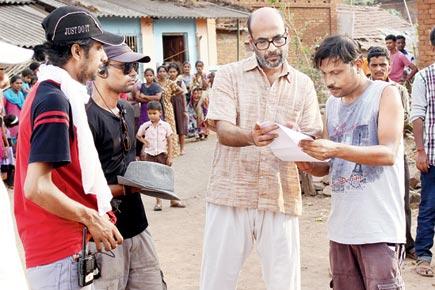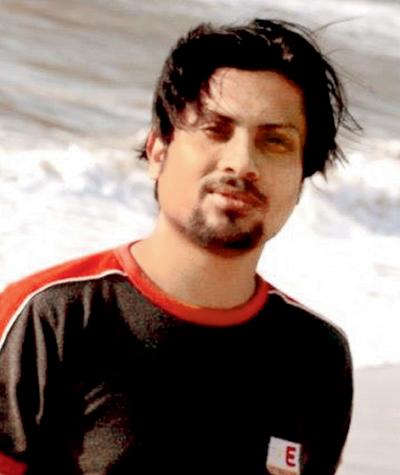Rajat Mukherjee's new film puts the spotlight on unethical clinical trials in India


Rajat Mukherjee (in grey) with actor Mohan Kapoor on the set of Umeed.
A couple of years ago, while sitting at his Malad home, director Rajat Mukherjee recalls watching an Al Jazeera documentary on how India has become a massive testing ground for US pharmaceutical companies to conduct drug trials. The film shows journalist Zeina Awad travelling to the country to investigate the role of these companies and the impact of their tests on people. "Till date, it continues to be one of the most hard hitting documentaries that I have watched.
The fact that lakhs of people were being tested upon without consent, in the name of vaccinations, is criminal," says Mukherjee, who worked as a fashion photographer for nine years before making his foray into films. Years later, when more reports started pouring in on the adverse effects of Gardasil, the only vaccine against cancer, in India, Mukherjee's interest in the matter intensified. "While American pharmaceutical company Merck had declared only seven deaths, an investigation by Vaccine Adverse Event Reporting System (VAERS) researcher, Janny Stokvis, revealed that the numbers were much higher, maybe in thousands because the casualties recorded were just within two months of the vaccination testing," he says. Why then, was nothing being done, was a question that baffled him. "I wanted to do something about the issue, in a manner that I know best: Make a film," he says.

Rajat Mukherjee
Years of research by Mukherjee have now been condensed in a two-hour 17-minute film, titled Umeeed, which will release later this year. Starring actors Freddy Daruwala, Milind Gunaji and Mohan Kapoor, Umeed is based on this. 'I don't want to make it a maudlin, depressing documentary, but a non-fictional film which presents facts in an engaging manner," he says. The filmmaker, however, is clear that he isn't against the concept of clinical trial or vaccination programmes.
"If we don't have those, how do we go ahead? My problem is with uninformed consent. The person who is dying doesn't even know that it is because of these trials," he says. According to Mukherjee, a big problem is omission by death, where according to Indian laws, only those deaths that occur during the trial period are recorded. "More often than not, the impact of the drugs is felt only after three months to a year. Which is why it goes unnoticed. In America, the tested person is under observation for four years, apart from being insured and given heavy compensation," he says.
To seek assistance with the research material for the film, Mukherjee reached out to NGOs and experts in the field. Lawyer and journalist Sandhya Srinivas was one of the first people that the 40-year-old met. Srinivas was the first petitioner to file a public interest litigation on unethical research on cervical cancer screening on 3,75,000 women from economically weaker backgrounds conducted by Tata Memorial Hospital and other institutions. The PIL, however, was dismissed by the Supreme Court. Mukherjee has also roped in Amar Jesani, researcher and consultant for WHO and activist Sathinath Sarangi, who has been campaigning victims of the Bhopal
Gas tragedy. All three will be present for the press meet of the film next week.
"The Center for Research on Multinational Corporations (SOMO) based in Amsterdam released a report stating that India is the biggest market for clinical trials and the market size is estimated at 12,000 crores by 2018. The reason is not hard to guess," he says. According to Mukherjee, pharmaceutical companies prefer India because of low cost — almost 60 per cent less than the US or Europe. "Doctors are also paid handsome amounts for trials on each person. It's a nexus," he says. For now Mukherjee, wants his film to initiate dialogue and raise awareness. "It's a start. I want people to get talking."
 Subscribe today by clicking the link and stay updated with the latest news!" Click here!
Subscribe today by clicking the link and stay updated with the latest news!" Click here!







